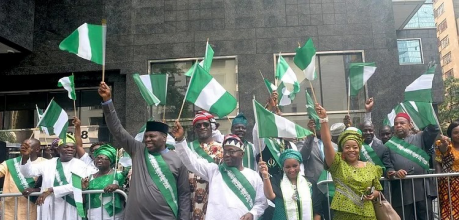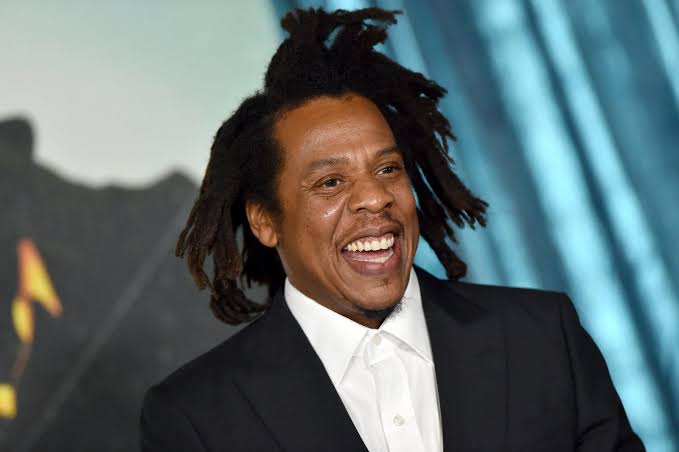Lifestyle
Nigeria Celebrates Diaspora Day, Emphasizes The Impact Of Nigerians Abroad

The Federal Government has officially designated July 25 as National Diaspora Day, in recognition of the significant contributions made by Nigerians living abroad towards national development. This year’s celebrations saw President Bola Tinubu, represented by the Secretary to the Government of the Federation (SGF), George Akume, address the nation on the vital role of the diaspora in Nigeria’s growth and development.
Speaking at the 2024 National Diaspora Day Celebrations in Abuja, President Tinubu highlighted the transformative potential of e-Health devices and digital health solutions for Nigeria’s healthcare system. Representing the Rivers West senatorial district, Senator Banigo underscored the critical need for multilayered health activities and multi-sectoral collaboration to achieve significant improvements in health outcomes across the nation.
According to United Nations data, Nigeria ranks among the top ten countries globally with the highest number of international migrants. President Tinubu urged for the diaspora’s contributions to be more visibly reflected in the nation’s economy. He reminisced about his own experience living and working abroad in the 1970s before returning home to contribute to Nigeria’s development. “As someone who once lived and worked abroad, I can attest that migration can be transformative and serious,” he said, encouraging Nigerians abroad to bring back their experiences to support his administration’s development agenda.
President Tinubu acknowledged the complex dynamics of migration, emphasizing that the government understands and does not hold against citizens who seek better opportunities elsewhere. He, however, urged them not to forget their homeland. “We cannot begrudge our citizens who are seeking better opportunities abroad, but we must urge them not to forget their homeland,” Tinubu said. He revealed that Nigeria received a total of $646 million in diaspora remittances between January and May 2024, highlighting the positive impact of recent reforms by the Central Bank of Nigeria (CBN) on the remittance inflow.
At the celebration, the Chairman and Chief Executive Officer of Nigerians in Diaspora Commission (NIDCOM), Abike Dabiri-Erewa, emphasized the substantial financial contributions of the diaspora community. “Nigerians in the Diaspora have remitted over 99 billion US dollars into the system in the last five years. This is huge and highly commendable,” she noted, urging the Federal Government to pay more attention to this critical sector. Dabiri-Erewa also discussed efforts to amend the constitution to allow for diaspora voting, revealing that a bill to that effect has passed the first reading in Parliament.
Lifestyle
The Pitt, The Studio Dominate 2025 Emmy Awards

The Pitt, The Studio Dominate 2025 Emmy Awards
Hollywood’s biggest television stars gathered on Sunday night for the 2025 Emmy Awards, where two productions, The Pitt and The Studio, emerged as the night’s biggest winners.
The Pitt, a gripping medical drama set in a bustling emergency room, clinched the coveted Best Drama Series, while The Studio, a satirical comedy about Hollywood politics, not only won Best Comedy Series but also shattered Emmy records with a clean sweep across multiple categories.
In a defining moment of the ceremony, veteran actor Noah Wyle earned his first-ever Emmy after decades in television, winning Lead Actor in a Drama Series for his performance in The Pitt.
Wyle, visibly moved, dedicated the award to healthcare workers worldwide, describing the show’s success as “a reflection of the courage and sacrifice of those who save lives every day.”
Seth Rogen’s The Studio proved unstoppable in the comedy category, taking home 13 trophies — the highest number of wins for a comedy series in a single year, according to the Television Academy.
Rogen, who co-created and starred in the show, also walked away with Lead Actor in a Comedy Series, his first Emmy.
He called the triumph “the proudest moment” of his career.
Critics have hailed The Studio for its sharp wit and insider satire, offering audiences a humorous but piercing look into Hollywood’s inner workings.
The series’ record-breaking feat now places it among the most celebrated comedies in Emmy history.
Industry watchers say the dual success of The Pitt and The Studio signals a shift in Hollywood storytelling, with both shows reflecting real-world struggles and triumphs in institutions — healthcare and entertainment — that resonate with global audiences.
The victories came against formidable contenders including Severance and Abbott Elementary, underscoring the appetite for fresh narratives that balance cultural depth with entertainment.
As the night drew to a close, the Emmy spotlight rested squarely on The Pitt and The Studio — productions that not only entertained millions but also reinforced television’s enduring power to mirror society.
Lifestyle
Jay-Z Emerges World’s Richest Musician with $2.5bn Net Worth — Forbes

Jay-Z Emerges World’s Richest Musician with $2.5bn Net Worth — Forbes
American rap icon and business mogul, Sean Carter, better known as Jay-Z, has been declared the world’s richest musician by Forbes with an estimated net worth of $2.5 billion.
The Roc Nation founder’s fortune cuts across multiple ventures, including his luxury champagne brand, Armand de Brignac (Ace of Spades), cognac label D’Ussé, and his stakes in real estate, hospitality, technology, and startups.
He also reaped huge gains from the sale of music streaming platform Tidal and his former clothing line, Rocawear.
Jay-Z’s rise to the top further cements his reputation as not only a cultural force but also one of the most successful music entrepreneurs globally.
On the female side, American pop star Taylor Swift retained her crown as the richest female musician, with a net worth of $1.6 billion.
Forbes noted that Swift remains the first artist in history to attain billionaire status solely from music and touring earnings.
Lifestyle
Single Mothers Can’t Raise Boys Into ‘Proper Men’ – Jim Iyke

Single Mothers Can’t Raise Boys Into ‘Proper Men’ – Jim Iyke
Nollywood star, Jim Iyke, has stirred controversy with his recent remarks on parenting, insisting that single mothers cannot raise a boy into a “proper man” without the presence of a male figure.
Speaking during an interview with Okay 101.7 FM in Accra, Ghana, the actor argued that women are naturally built to nurture but lack the disciplinary balance needed to raise boys into men.
“A woman can’t raise a man. You can’t, you’re not built for it. A single mother cannot raise a man properly. You need a male influence – go get your brother that’s doing well or your father or even any man that you trust. There has to be a male presence in it [raising a boy child],” Iyke said.
He further maintained that boys require strict guidance from men in order to grow into disciplined adults.
“Because women are naturally built to nurture, to love. And then what you’re going to raise is a very weak man? He is going to be everything like the men that left you. You need somebody that would discipline him, tell him ‘No’ as often times as possible, and put him in the grind,” he added.
Iyke’s remarks have since triggered heated debates across social media, with some agreeing with his perspective while others accused him of undermining the struggles of single mothers who successfully raise responsible children without male support.
The actor, who has often been outspoken on social issues, did not back down on his position, stressing that the absence of a male role model leaves a critical gap in raising boys.
-

 Analysis7 days ago
Analysis7 days agoThe Agony of a Columnist, by Alabidun Shuaib AbdulRahman
-

 Analysis6 days ago
Analysis6 days agoNow That Nigeria Has a U.S. Ambassador-Designate, by Boniface Ihiasota
-

 Diplomacy6 days ago
Diplomacy6 days agoCARICOM Raises Alarm Over Political Crisis in Haiti
-

 News7 days ago
News7 days agoMacron invites Chad’s Déby to Paris amid push to reset ties
-

 News7 days ago
News7 days agoTinubu Unhurt After Brief Stumble at Turkey Reception
-

 News7 days ago
News7 days agoCourt, Congress Pile Pressure on DHS Over Minnesota Operations












